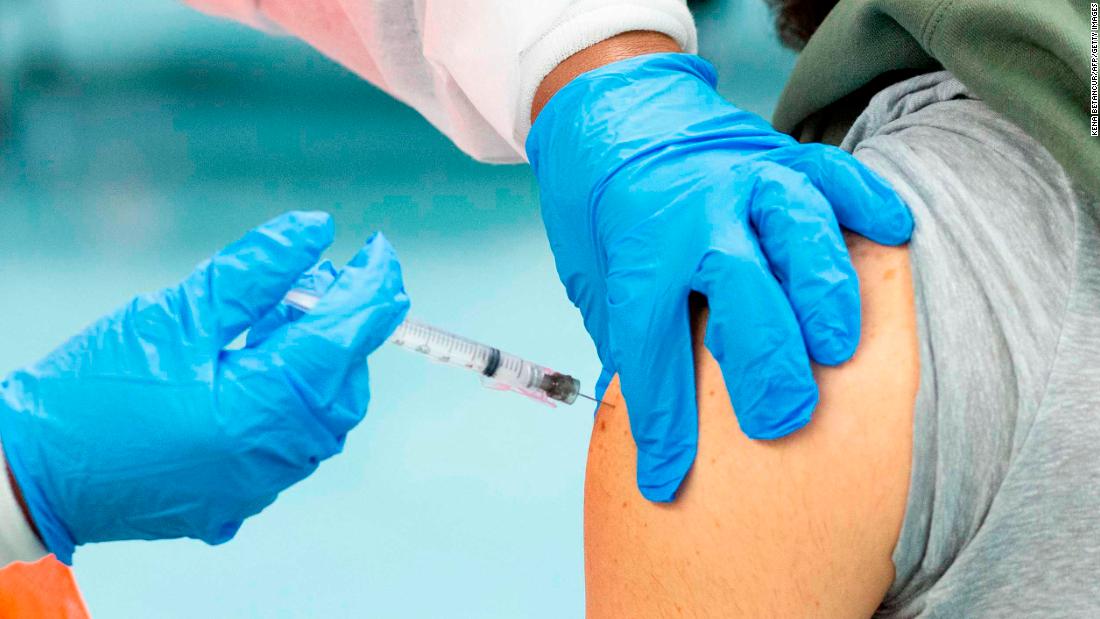
At first glance, the idea makes sense — this is more or less like the proof-of-age ID long used to allow (or not) youngish-looking people to order alcohol in bars and restaurants. One hopes, of course, that Excelsior Pass (named after the single-word New York State motto, "Excelsior") is less prone to counterfeit than the screen-at-the-door system for bars and pubs.
But like so many back to normal "tout de suite" ideas, including those favored by some red state governors that are intended to dig the country out of the pandemic rut, the Excelsior plan likely will cause more problems than it solves.
Some of this is due to bad science, some to perpetuation of health care inequality, and some is that right now, just as the latest Covid-19 surge has begun to rear its ugly head in the US, it sends the exact wrong message about the still-present threat of Covid-19.
To test drive the goods, I signed up for the Excelsior Pass, the first of its kind in the nation. It extracts data from New York state on vaccine status and recent PCR or antigen tests, and can be completed in about 30 seconds if you don't read all of the information about disclosure and confidentiality.
If you are someone who reads the fine print, you may be scared off. With a few simple questions — date of birth, name, then a pop quiz of sorts, asking you what vaccine you received along with where and when — New York state figures out who you are and verifies your information in the blink of an eye. Although the app comes with all sorts of assurances about patient confidentiality, Big Brother-phobes will possibly prefer to delete and move on.
Assuming, though, that the urge to get to a Mets game outweighs trepidation about too many people knowing too much about you, the bigger issue is the one large scientific mistake the Excelsior-developers have made. They want one of three medical facts about you: When your vaccination series was completed (logical), or when your last negative PCR molecular test was completed (also logical), or when your last negative antigen test was completed (uh-oh).
Inclusion of the very mediocre 15-minute antigen test (once referred to as the "rapid antigen test") is a gigantic mistake. It is widely used by many walk-in medical clinics and has been shown to be just fine to use for someone who is ill and might have Covid-19.
However, for those with no symptoms — the worried well — CDC research suggests it is no better than a coin toss for diagnosis of actually infected people in the early pre-symptom-but-contagious phase of infection. And this is exactly the worst group to not diagnose. They feel great! And relieved to be antigen-(false) negative! And are so happy to hang out with friends instead of following up with the recommended PCR test if their 15-minute test came back negative. All the better to spread coronavirus.
Second, Covid-19 infection has revealed many aspects of health care inequality in the United States, including substantial impact by race and by income on infection, mortality and most recently, vaccination rates. Excelsior does offer the option of printing out a pass, but an app designed for cellphones and those looking to spend a few bucks at a ball game or a restaurant will likely be used more heavily by the affluent, giving them mobility and peace-of-mind not available to health care have-nots.
It's true that our vaccination history already is ascertained at various points along the way. Children entering and continuing school must show proof of several vaccinations. Colleges require vaccinations. Perhaps then the fancy, futuristic app is not the best way to share this information but rather a standard "proof of vaccination" already used in countless situations. Paper, ink, a pediatrician's illegible handwriting — this has served us well for many years.
Finally, any move predicated on the notion that we are near the end of the pandemic certainly is nice but has substantial risk. Right now the coast is not clear. It ain't over till it's over and it ain't over. The danger of a "pass" — Excelsior or otherwise — likely will be construed by some as a signal that the all-clear has been given and the threat has passed.
Yes, a "pass" may be great for business and businesses, but it will cause harm to human health. Deference to strictly financial measures or to the collective eagerness to resume a less-constrained daily life must be held in abeyance, however miserable it feels now, until the population is better vaccinated. As the latest rise in cases in the US is demonstrating, though we wish otherwise, we simply are not there yet. So too with Excelsior Pass.
A suggestion to Gov. Cuomo: I'll pass for now but perhaps let's try this one again in mid-May.
"Opinion" - Google News
March 30, 2021 at 08:54AM
https://ift.tt/3sENzfa
Why the first state vaccine pass isn't ready for prime time - CNN
"Opinion" - Google News
https://ift.tt/2FkSo6m
Shoes Man Tutorial
Pos News Update
Meme Update
Korean Entertainment News
Japan News Update
No comments:
Post a Comment